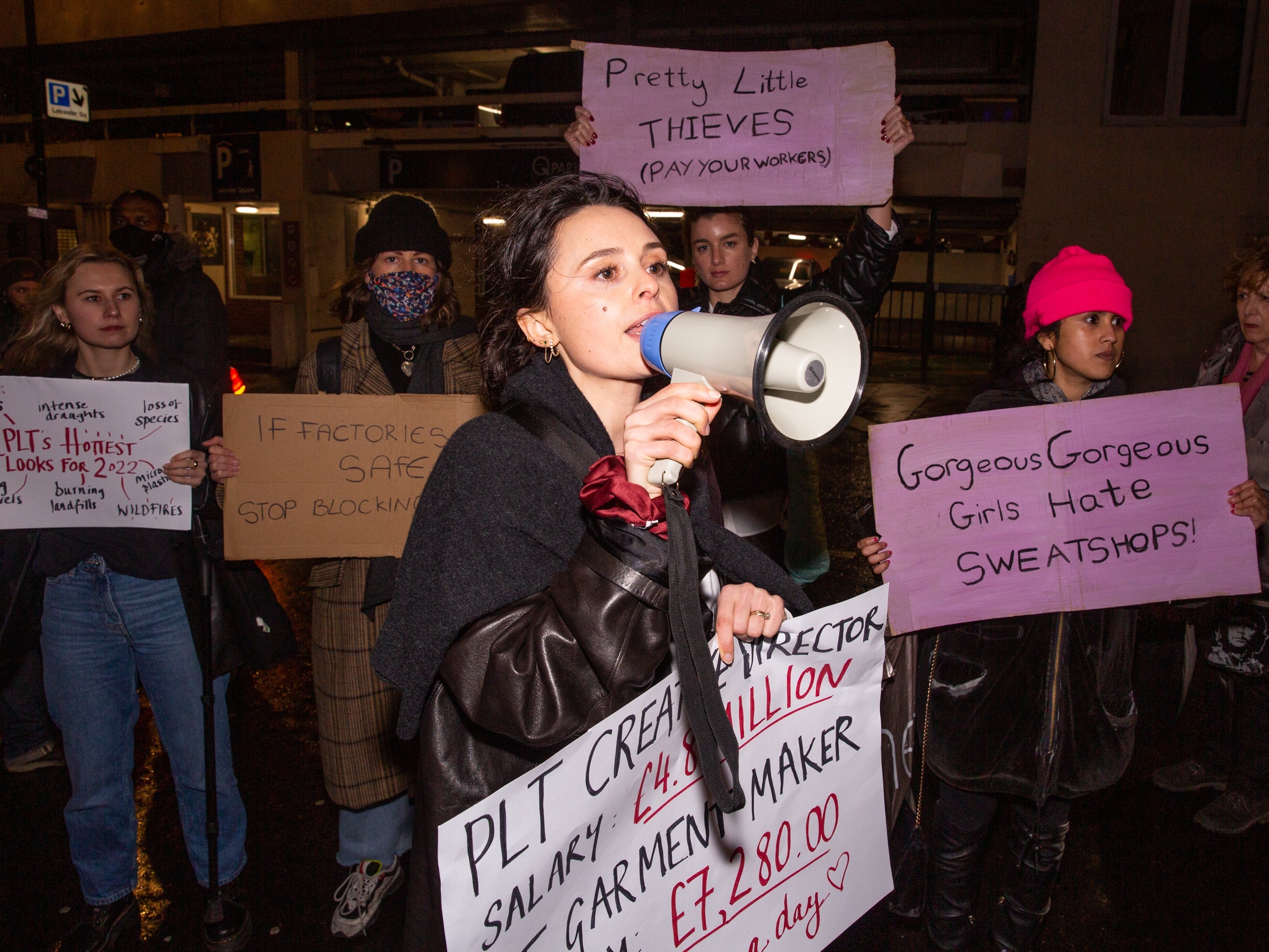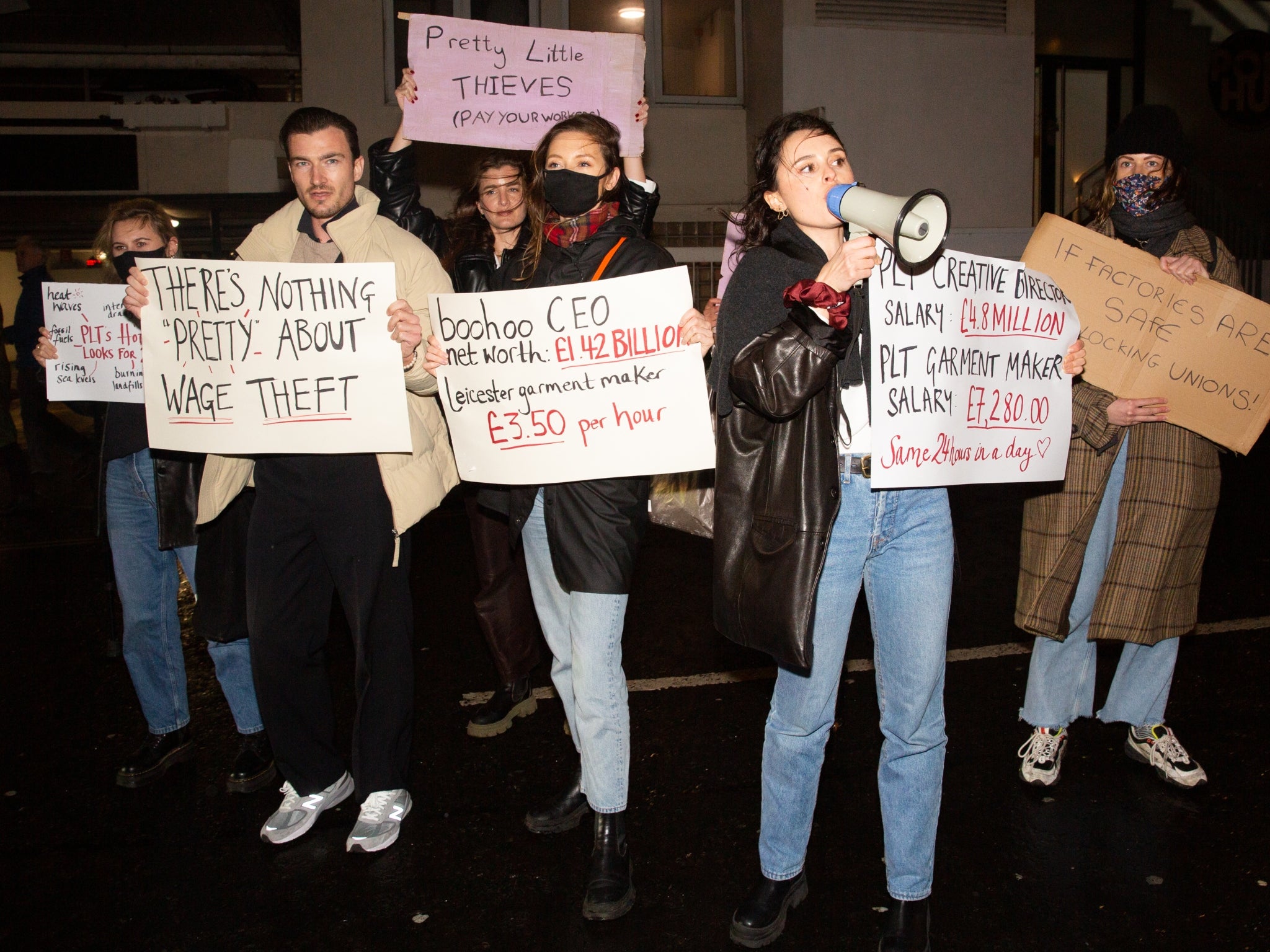I staged a protest against the Pretty Little Thing fashion show. This is why
EXCLUSIVE: Pretty Little Thing cannot continue to get away with promoting disposable fashion and I am extremely alarmed by claims about its supply chain, argues Venetia La Manna


Your support helps us to tell the story
From reproductive rights to climate change to Big Tech, The Independent is on the ground when the story is developing. Whether it's investigating the financials of Elon Musk's pro-Trump PAC or producing our latest documentary, 'The A Word', which shines a light on the American women fighting for reproductive rights, we know how important it is to parse out the facts from the messaging.
At such a critical moment in US history, we need reporters on the ground. Your donation allows us to keep sending journalists to speak to both sides of the story.
The Independent is trusted by Americans across the entire political spectrum. And unlike many other quality news outlets, we choose not to lock Americans out of our reporting and analysis with paywalls. We believe quality journalism should be available to everyone, paid for by those who can afford it.
Your support makes all the difference.My friend Mayisha and I staged a protest outside the Pretty Little Thing (PLT) runway show in central London on Wednesday night, in a bid to hold the brand to account for the harm and devastation we believe they are causing to both people and the planet.
Keeping it small for security reasons, Mayisha (who runs the brilliant @OhSoEthical Instagram account) and I gathered a group of concerned people together to stand at the front of the entrance to The Londoner hotel where the fashion show was being hosted.
I and several others gave speeches about fashion’s contribution to climate breakdown to the long queue of event goers. To the reality stars, podcasters and influencers among them, we expressed concern about claims that the women who make PLT’s clothes don’t earn fair living wages. But our protest didn’t land with everyone, as several show-goers clad in the brand’s latest looks sniggered and giggled to one another as they queued to get in.
I must be missing the joke. Boohoo Group Plc, PLT’s parent company (and one of the biggest ultra-fast fashion brands in the world) is helmed by billionaire Mahmud Kamani, who, according to the Sunday Times Rich List, is worth £1.4bn. His multi-millionaire son Umar runs Pretty Little Thing. And yet both brands have faced allegations of serious misconduct in their supply chain, relating to illegally low wages for workers.
In 2020, an investigation by The Sunday Times claimed that workers in a Leicester factory supplying Boohoo products were being paid as little as £3.50 an hour, and a report by the not-for-profit co-operative Labour Behind the Label claimed that employees were being made to work without sufficient PPE to protect against Covid.

In a statement to The Independent, a Pretty Little Thing spokesperson said “any suggestion” that garment workers for PLT or other Boohoo Group brands are paid lower than the minimum wage is “grossly inaccurate”.
“We publish a list of all our approved UK and international manufacturers, all of whom have been audited over the last 18 months, and we do not tolerate any non-compliance with our supplier Code of Conduct,” they said.
“We operate a whistleblowing hotline so people can share any concerns they may have and we work with relevant government agencies to ensure the people who make our clothes have their rights in the workplace protected.”
We believe PLT are causing harm to both people and the planet
The fashion show came just weeks after Pretty Little Thing’s creative director Molly-Mae Hague faced a media storm following comments she made in an interview with Steven Bartlett on the Diary of a CEO podcast. The ex-Love Island star, who earns a reported six figures a month in her role for the ultra-fast fashion brand, said: “We all have the same 24 hours in a day,” implying that anyone struggling to be as successful as her simply wasn’t working hard enough. Hague’s comments launched a thousand memes, ranging from those highlighting her absurd insensitivity, to others calling her Molly-Mae Thatcher.
In response to the criticism, Hague’s representatives said that Hague was referencing a Beyoncé quote and that she appreciates “everyone is raised in different ways and from different backgrounds” but her comments were “in reference to timing, hard work and determination in her own life”.
Curiously, Bartlett – who is usually thorough in his questioning – failed to ask anything about the social and environmental cost of PLT.

Aside from the supply chain and comments from an out-of-touch influencer, PLT and Boohoo contribute to an ultra-fast fashion model that promotes disposability and contributes significantly to the fashion industry’s mammoth carbon footprint. We are in a climate emergency and the garment industry is responsible for 10 per cent of human-caused greenhouse gas emissions and 20 per cent of global wastewater.
PLT and other big fashion brands sell thousands of new items every single week in an unsustainable business model built on blink-and-you’ll-miss-them trends. When you give away clothes for free (as PLT did during their Black Friday sale), it seems to me that this implies that clothing is disposable. As it stands, more than 30 per cent of our unwanted clothing currently goes to landfill. Clearly, this approach doesn’t add up.
While PLT tries to sell itself on the inclusive-appearing hashtag #EveryBODYinPLT, they might want to think about how this applies to the people impacted by the devastation of the climate crisis; those, working the same 24 hours a day as the rest of us, but living quite a different life.
So please, go ahead and hold your catwalk shows. We’ll be there with our placards shining a light on your glossy empire of waste.
Join our commenting forum
Join thought-provoking conversations, follow other Independent readers and see their replies
Comments